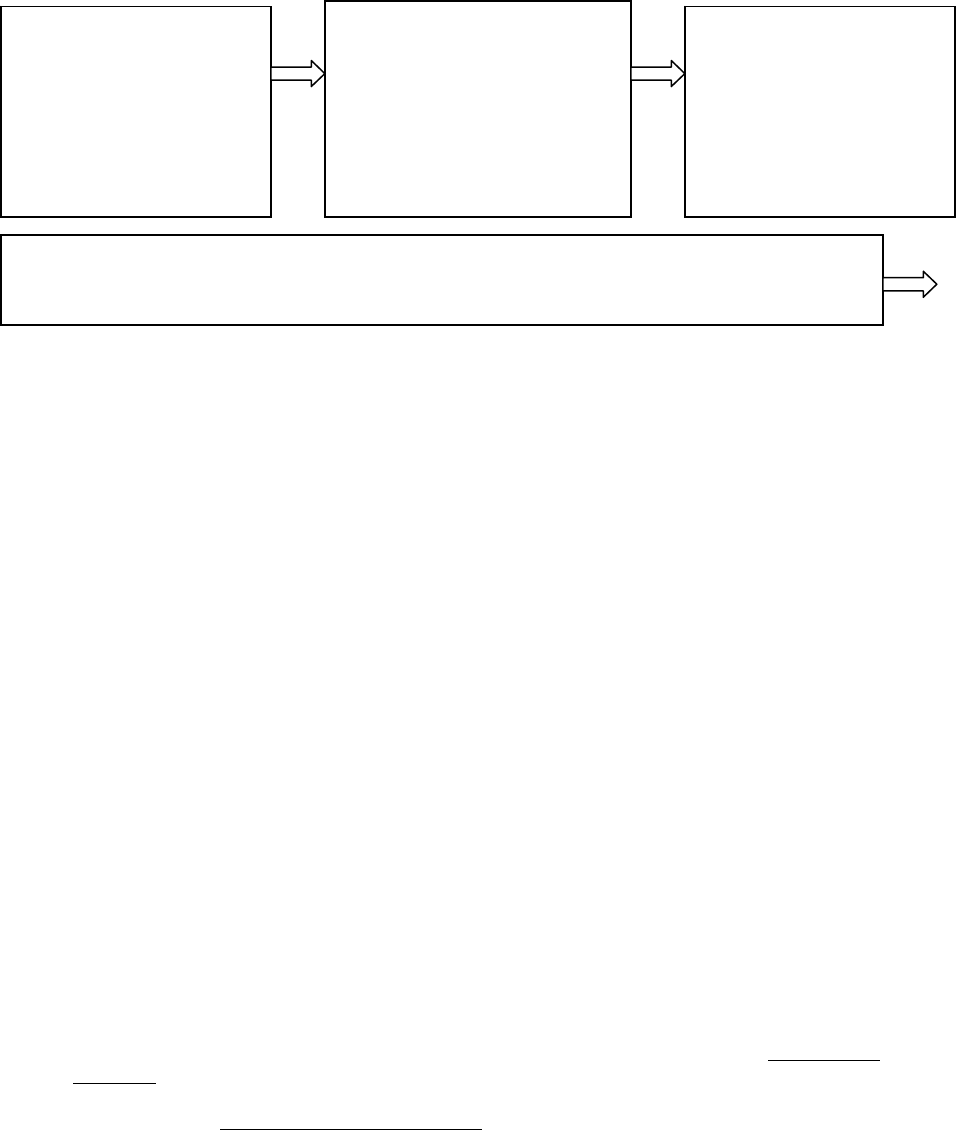
Attachment 1 Meeting Between PIIB and ICE 05.05.07
01/06/2007 1 of 6
Three Stages to Membership of the
Institution of Civil Engineers (ICE)
Anyone who wants to become a professionally qualified member of ICE must satisfy the requirements
of the three stages to membership:
1. EDUCATIONAL BASE
1) An academic qualification is recognised as eligible for ICE membership:
I. If it is listed in the FEANI index (www.feani.org). FEANI is the European Federation of
National Engineering Associations, which aims to facilitate the mutual recognition of
engineering qualifications in Europe and attributes the Eur Ing title to professional
engineers.
II. If it is listed under the Washington Accord for Chartered Engineer (CEng) or the Sydney
Accord for Incorporated Engineer (IEng). These are agreements between the bodies
responsible for accrediting professional engineering degree programmes in each of the
signatory countries.
III. If it has been accredited by the Joint Board of Moderators (formed by four UK professional
engineering bodies) or EURACE (a framework for the accreditation of European
Engineering programmes).
2) The majority of Polish universities and qualifications are listed in the FEANI index so will be
eligible for ICE membership. The length of the course will affect the grade of membership that
can be applied for:
I. 5 year degrees meet the educational base for Chartered Engineer (CEng) - ie a five year
Magister taken before 2003 or a Bachelor plus Master taken after 2003.
II. 3 year degrees (Bachelor) taken after 2003 meet the educational base for Incorporated
Engineer (IEng).
3) Where a qualification is not recognised as eligible for ICE membership in one of the ways outlined
in point 1), it will be individually assessed by ICE’s Academic Qualifications Panel.
2. INITIAL PROFESSIONAL DEVELOPMENT (IPD)
1) All ICE applicants must undertake a period of training or work experience in order to be able to
demonstrate the attributes required for ICE membership (please refer to Appendix A).
2) Where an applicant is qualified for the same profession in a country where the profession is
regulated, evidence of professional qualification must be provided from the competent body.
Therefore all Polish Civil Engineers wishing to become members of ICE via the European
Diplomate route must be registered with PIIB (
Polska Izba Inzynierow Budownictwa, the Polish
Chamber of Engineers).
Educational Base
The achievement of the
required academic
qualifications
Initial Professional
Development (IPD)
The completion of a period of
responsible work experience
under guidance and
decreasing supervision
Professional Review
The successful completion
of a Professional Review
or, where applicable, the
application approval by an
ICE Panel
Continuing Professional Development (CPD)
The systematic maintenance, improvement and broadening of knowledge, skills and
competence, which must continue throughout the life of a professionally qualified member
Attachment 1 Meeting Between PIIB and ICE 05.05.07
01/06/2007 2 of 6
3. PROFESSIONAL REVIEW
1) Most ICE applicants are required to demonstrate that they possess the required attributes by
sitting a Professional Review, which consists of an interview, presentation and written reports.
2) Those applying via the European Diplomate route are required to demonstrate that they possess
the required attributes by submitting evidence of this with their application. This is assessed by
an ICE Panel.

Attachment 1 Meeting Between PIIB and ICE 05.05.07
01/06/2007 3 of 6
Applying to the Institution of Civil Engineers (ICE) under the
European Directive on the recognition of professional qualifications
A. Principles of the Directive
1) The right to live and work in another EU Member State is a fundamental right for every citizen
of the European Union. In order to facilitate the mobility of professionals, the EU has
estalbished legislation to ensure that professional qualifications are recognised on a mutual
basis between all Member States, because certain professions or titles are protected in some
EU countries. This is covered by Directive 2005/36/EC, which includes the previous Directive
89/48/EEC.
2) The basic principle of mutual recognition is that, if you are entitled to practise a regulated
profession in your own country, you should be able to practise the same profession in any
other EU country and use the appropriate title. Even if your profession is not regulated in your
home country, you should still be able to practise in a Member State where it is regulated, as
long as you can provide proof of satisfactory education and professional experience.
B. Comparison between UK and Poland
1) The profession of civil engineering is regulated in Poland and all those wishing to work as a
civil engineer must be registered with Polska Izba Inzynierow Budownictwa (PIIB – the Polish
Chamber of Engineers).
2) The profession of civil engineering is unregulated in the UK, therefore registration with ICE is
not obligatory and civil engineers from any country can work in the UK without being an ICE
member.
3) Some employers may, however, require that its employees are Chartered members of ICE, as
this proves they have reached a high standard of education and experience. For this reason,
Polish civil engineers working in the UK may find it desirable or necessary to become an ICE
member.
4) ICE membership also enables the member to use the post nominal letters of CEng or IEng
(Chartered Engineer and Incorporated Engineer), which are awarded by the Engineering
Council UK. These titles are deemed to be protected titles for the purposes of the EU
legislation, and therefore ICE has a separate route to membership for civil engineers who are
professionally qualified within the EU, which is called the European Diplomate route.
5) The European Diplomate route is the appropriate route to ICE membership for applications
from Polish Civil Engineers registered with PIIB.
C. Application process via the European Diplomate Route
1) Applications via the European Diplomate route are considered on a case by case basis.
2) ICE membership is not automatic
. The profession is not regulated in the UK and anyone can
work as a civil engineer without membership of ICE. ICE is therefore entitled to assess the
applicant’s academic qualifications and professional experience against its own standards and
criteria.
3) European Diplomate applicants are required to have the level of English necessary for
practising the profession of civil engineer in the UK.

Attachment 1 Meeting Between PIIB and ICE 05.05.07
01/06/2007 4 of 6
4) All European Diplomate applications are assessed by ICE’s Exemption and Recognition Panel,
which meets four times a year. Closing dates for the submission of applications and the Panel
meetings are available on ICE’s website: www.ice.org.uk/joining/joining_keydates.asp
5) Applicants are required to submit the following to ICE for assessment:
I. A completed application form ICE 3136
(from www.ice.org.uk/joining/joining_european.asp)
II. A detailed CV
III. Evidence that they meet the ICE member attributes
IV. Evidence of their academic qualifications
V. Membership certificate of their national competent body (ie PIIB)
VI. The application fee. In 2007 the fee is £200. All current fees are listed on:
www.ice.org.uk/joining/joining_fees.asp
6) Applicants will also be asked for a voluntary Development Action Plan and a statement in
support of the applicant from a Professional Engineer with knowledge of the applicant’s work.
These are to help the Panel in the assessment of the application, but the applicant can choose
whether or not to submit these with their application.
7) The outcome of the assessment will be notified by letter normally within two weeks of the
relevant Panel meeting.
8) In certain circumstances, the Panel may need to request further information from an
applicant if the evidence provided is not sufficient for them to assess whether the
applicant meets ICE’s attributes. In these cases the applicant will be informed of any
significant differences and what further evidence they need to supply. The applicant will
need to resubmit their application which will be assessed at the next available Panel
meeting.
9) If the Panel assesses that there is still a substantial difference in the applicant’s
knowledge and expertise compared with ICE attributes after the resubmission, they will
ask the applicant to take either an aptitude test or a period of adaptation in order to
address the substantial difference in knowledge and expertise. The period of adaptation
should allow the applicant to acquire the knowledge and skills required under the
guidance of a qualified member. It is the applicant’s choice whether to take the aptitude
test or the period of adaptation.
D. Forms and further information
1) Application forms and guidance on applying through the European Diplomate route are
downloadable from ICE’s website: www.ice.org.uk/joining/joining_european.asp
2) Any general enquiries on the European Diplomate route can be sent to Rebecca Webster,
International Membership Senior Executive, email rebecca.web[email protected]

Attachment 1 Meeting Between PIIB and ICE 05.05.07
01/06/2007 5 of 6
APPENDIX A
INSTITUTION OF CIVIL ENGINEERS - MEMBER ATTRIBUTES
• The interpretation of attributes 1 and 2 relate to your fields of work. You must demonstrate a
sound understanding of core engineering principles in those fields.
• Your level of attainment of attributes 3 to 9 will be judged with regard to their relative
importance within your fields of work.
• As a prospective ICE member, in order to fulfil your obligation to society and to meet the
requirements of Health, Safety and Welfare legislation you must have a sound knowledge and
understanding of the construction process together with the activities connected to it. You
must have an appreciation of and be able to identify and manage risks arising as a
consequence of your actions.
• For those whose experience includes the construction process, site experience will ordinarily
be required.
Attributes of a Chartered member of ICE (CEng MICE)
Attribute Group
Attributes to be
demonstrated for ICE
membership as Incorporated
Engineer (IEng MICE)
Additional attributes to be
demonstrated for ICE membership as
Chartered Engineer (CEng MICE)
1. Engineering
Knowledge and
Understanding
A Ability to maintain and
extend a sound theoretical
approach to the application of
technology in engineering
practice.
B Ability to use a sound
evidence- based approach to
problem solving and be able to
contribute to continuous
improvement.
C Ability to maintain and extend a
sound theoretical approach in enabling
the introduction and exploitation of
new and advancing technology.
D Ability to engage in the creative and
innovative development of engineering
technology and continuous
improvement systems.
2. Engineering
Application
A Ability to identify, review
and select techniques,
procedures and methods to
undertake engineering tasks.
B Ability to contribute to the
design and development of
engineering solutions.
C Ability to implement design
solutions and contribute to
their evaluation.
D Ability to conduct appropriate
research, and undertake design and
development of engineering solutions.
E Ability to implement design solutions
and evaluate their effectiveness.
3. Management &
Leadership
A Ability to plan for effective
project implementation.
B Ability to manage the
planning and organization of
tasks, people and resources.
C Ability to manage teams and
develop staff to meet changing
technical and managerial
needs.
D Ability to manage quality
processes
E Ability to plan direct and control
tasks, people and resources
F Ability to lead teams and develop
staff to meet changing technical and
managerial needs.
G Commitment to continuous
improvement through quality
management

Attachment 1 Meeting Between PIIB and ICE 05.05.07
01/06/2007 6 of 6
4. Independent
Judgement &
Responsibility
A Ability to identify the limits of
personal knowledge and
skills.
B Ability to exercise sound
independent engineering
judgment and take
responsibility
C Ability to identify the limits of a
team’s skill and knowledge.
D Ability to exercise sound holistic
independent judgment and take
responsibility
5. Commercial Ability
A Ability to prepare and
control budgets.
B A sound knowledge of
statutory and commercial
frameworks within own area of
responsibility.
C A high level of commercial and
contractual understanding and an
ability to use it within own area of
responsibility.
6. Health Safety &
Welfare
A A sound knowledge of
legislation, hazards & safe
systems of work.
B Ability to manage risks.
C Ability to manage health,
safety and welfare within own
area of responsibility.
D Commitment to leading continuous
improvement in health, safety & welfare.
7. Sustainable
Development
A A sound knowledge of
sustainable development best
practice.
B Ability to manage
engineering activities that
contribute to sustainable
development
C Committed to leading continuous
improvement in sustainable
development.
8. Interpersonal skills
and Communication
A Ability to communicate well
with others at all levels.
B Ability to discuss ideas and
plans competently and with
confidence.
C Personal and social skills.
D Ability to communicate new concepts
and ideas to technical and non-
technical colleagues.
9. Professional
Commitment
A Understanding and compliance with the ICE Code of Conduct
B Commitment to current and future CPD of self and others
C Support of ICE activities.
D A personal commitment to professional standards, recognising
obligations to society, the profession and the environment.
